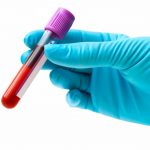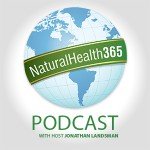![antidepressants]() (Naturalhealth365) Rates of depression in the United States have more than doubled in the past few decades. In the years between 1991 and 2002 alone, the prevalence of major depression rose from 3.33 percent to 7.06 percent – and it continues to rise. A growing number of researchers and mental health professionals believe they know the reason why and it’s not a lack of antidepressants in the diet.
(Naturalhealth365) Rates of depression in the United States have more than doubled in the past few decades. In the years between 1991 and 2002 alone, the prevalence of major depression rose from 3.33 percent to 7.06 percent – and it continues to rise. A growing number of researchers and mental health professionals believe they know the reason why and it’s not a lack of antidepressants in the diet.
In fact, in “The Sedated Society” – a book published by the Council for Evidence-based Psychiatry, the authors make a compelling case against the widespread use of antidepressants. Not only are these drugs unhelpful in treating depression, they maintain, but they can actually cause it.
If you know anyone taking antidepressant medication – share this news (below) with them and help prevent years of avoidable emotional pain.
Most depressed patients will experience a recurrence – despite years of maintenance on drugs
According to a review published in Medical Hypothesis, up to 80 percent of patients diagnosed with major depressive disorder will experience a recurrence – despite a constant ‘maintenance dose’ of an antidepressant.
The prevalence of treatment-resistant depression – in which patients have relapses of depression even while on antidepressants – has increased among depressed individuals, rising from 10 to 15 percent in the early 1990s to roughly 40 percent in 2006.
Not only do antidepressants not treat depression, but they may actually contribute to it, causing a “chronic depressive syndrome.” In other words, treating resistant and chronic depression with antidepressants not only worsens the condition – but makes the depression permanent.
Ten renowned mental health experts unite to condemn antidepressants
Ten different experts collaborated on The Sedated Society, a scathing evaluation of the adverse effects of antidepressants – and of pharmaceutical companies’ flawed studies and deliberate manipulation of data.
The authors flatly state that selective serotonin reuptake inhibitors (SSRIs) and anti-psychotic medications are no better than placebo for treating depression.
According to co-author Dr. Peter Gotzsche, a noted clinical researcher at the University of Copenhagen, the drugs fail to treat mental or emotional problems. “There is no justification for lifelong use,” Dr. Gotzsche says of antidepressants.
The book also details the experiences of Luke Montagu, also known in the United Kingdom as Viscount Hinchingbrooke. Montagu was on antianxiety medication for two decades – before discontinuing it and suffering a grueling withdrawal that he says lasted for years. “Antidepressants ruined my life,” Montagu says.
Study scandal: Prozac trials marked by manipulation of data and concealed results
Dr. Gotzsche maintains that pharmaceutical companies conceal and suppress unfavorable studies – while cherry-picking only favorable data from others.
For example, Dr. Gotzsche says that 25 percent of participants in a Prozac trial were also given a tranquilizer in order to mitigate the risk of suicide. In addition, Dr. Gotzsche reports that researchers violated the randomized, double-blind protocols that lend credibility to medical studies.
Psychiatrist Dr. Sami Timimi, another of the book’s co-authors, agrees. Studies on Prozac (fluoxetine) conducted by the National Institutes of Health actually showed it worked no better than placebo, Dr. Timimi maintains. However, the statistics were skewed to make it look as if Prozac were more effective.
Psychiatrist Dr. Peter Breggin, yet another co-author, maintains that GlaxoSmithKline, the manufacturers of Seroxat, suppressed trials that showed that their antidepressant increased the risk of suicide in children.
The motive for the fraud, says Dr.Gotzsche was purely financial. (As usual, the pharmaceutical industry will do anything to protect its profits).
Warning: Antidepressants are toxic and addictive
The philosophy behind antidepressants is that depressed people have lower levels of serotonin, a neurotransmitter that helps maintain stable mood. SSRIs are intended to slow the breakdown of serotonin in the brain – leaving more available for longer periods of time.
Dr. Gotzsche notes that there is no research showing a link between serotonin levels in the brain and depression – and says there is no evidence that SSRIs correct brain chemistry.
In fact, he maintains that they cause brain damage. Animal studies have shown that antidepressants can shrink the connections between brain cells – which don’t regenerate.
Side effects of SSRIs can include diminished sex drive and tardive dyskinesia – a disorder causing involuntary, repetitive muscle movements. Damage can persist long after the patient has stopped taking them.
Withdrawal from SSRIs can cause severe symptoms, which could include akathisia – an intense compulsion to move. Akathisia may be accompanied by an inability to sit still, pacing, anxiety, panic attacks and aggression. According to Dr. Breggin, akathisia can predispose sufferers to violence against themselves or others.
Antidepressants cause a short-term lift, but long-term misery
Dr. Robert Whitaker, a co-author and psychiatrist, acknowledges that patients taking antidepressants do experience a lessening of symptoms – over the short term. But this temporary improvement, says Whitaker, is not any more pronounced than what is seen in patients treated with a placebo.
Clearly, antidepressant medications provide short-term benefits – but poorer outcomes in the long term.
Researcher Rif El-Mallakh, M.D., uses the phrase “tardive dysphoria” to describe the consequences of SSRIs. A play on words involving the term “tardive dyskinesia,” the phrase references the “delayed unhappiness” that antidepressants can produce.
As The Sedated Society reports, non-depressed individuals given antidepressants for other problems often become significantly depressed – with the depressive condition persisting long after the antidepressants are discontinued.
APA treatment guidelines for major depression call for long-term drug use
Of course, antidepressant medication is currently the order of the day in psychiatric medicine. According to the American Psychiatric Association (APA) treatment guidelines for major depressive disorder, an antidepressant medication that produced symptom remission during the acute and continuation phases of treatment should be continued at a full therapeutic dose.
A national follow-up study published in Psychotherapy and Psychosomatics examined the long-term consequences of antidepressant therapy, evaluating patients nine years after treatment.
The results were stunning.
The researchers found that depressive symptoms were higher after treatment with medication – as opposed to after treatment without medication. And, among people with major depressive disorder, symptoms were higher (after treatment that included medication) than if they had undergone no treatment at all.
The team noted that their study suggested “possible long-term iatrogenic (medically caused) effects of antidepressants.”
If the authors of “The Sedated Society” are correct, millions of people are being prescribed medications that cause the very syndrome that they are meant to treat – a truly tragic situation.
Sources for this article include:
MedicalExpress.com
MadInAmerica.com
DailyMail.com
Karger.com
GMOs & Dangerous Chemicals
Natural Health 365
Natural Health 365 is a premium source of trending and popular health-related news, science, testimony & research articles on the most up to date and relevant natural health information. The articles on GMOs & other Dangerous Chemicals found herein are meant to inform and advise our site visitors on steering clear of foods and other consumer products that contain Genetically Modified Organisms and/or Chemicals that are DANGEROUS to human health.
Join thousands of daily visitors staying informed and involved on Natural Health 365! We seek out scientific solutions with proven results and it is our mission to keep you up to date on the latest information! Articles range in topic from vaccination overviews to linking specific, common vaccines to the development of autism. We also aim to educate the public on the dangers of vaccines and provide in depth analysis of political vaccination bills.
Read Some of Our Most Popular Articles
Consumer Alert: GMO Apples & Potatoes are a Public Health Risk, Roundup Herbicide & GMOs Destroy Your Digestive System, US Senate Votes to Shut Down GMO Labeling Bill, Monsanto Lies Revealed.
GMO & Dangerous Chemicals are two of our major post categories on www.naturalhealth365.com and contain over 90 articles that cover a wide range of subjects; including but not limited to…
GMOs & Dangerous Chemicals
More Articles on GMOs & Toxic Chemicals
In addition to publishing articles concerning the most up-to-date information on GMO Foods, Research, & Toxic Chemicals that have dangerous and unintended consenquences, we also aim to connect healthy lifestyles, non-GMO diets and balanced consumption of dietary supplements to lifelong health and adding happy years to your life.
DID YOU KNOW?
Did you know that Monsanto is one of the most profitable entities on the planet, while the farmers that make them so successful are barely able to feed their families? Or that mono-cropping erodes our top soil so that no vegetables, grains, or fruits will grow in the wake of a mono-cropped field? Perhaps you didn’t know that organized events to protest Monsanto and their signature chemical, Roundup? You can find all of that information and more right here on Natural Health 365.
Join Our Email List
Each day, visitors sign up for our weekly informative news sent directly to their email or RSS feed agregator. We send out three weekly emails keeping you informed and involved on the latest Natural Health News, information about our FREE SHOWS and updates on your favorite topics including Food & Nutrition, Cancer & Heart Disease, Vaccines & Autism, & – of course – GMOs & Dangerous Chemicals!
You can also check out our VIP member area, The Inner Circle, where you get access to thousands of recorded interview (audio/video), pod casts, & literature by some of the worlds foremost experts on Natural Health and Treatments that could save you thousands! Learn how to REVERSE disease without the use of toxic and expensive medications.
Natural Health 365 also is a venue for webinars on various topics, has a flourishing e-commerce store where you can purchase vitamins, pro biotics, supplements and unique products such as Grazing Goat Whey Protein.
Grazing Goat Whey Protein![™]() is formulated exclusively for the health-conscious consumer looking for the finest whey protein nutritional supplement on the planet.* Best of all, this goat whey protein comes from goats that graze – 365 days per year – on pesticide and chemical free pastures. No hormones, antibiotics or pesticides are used – ever. This product is non-GMO and gluten free.
is formulated exclusively for the health-conscious consumer looking for the finest whey protein nutritional supplement on the planet.* Best of all, this goat whey protein comes from goats that graze – 365 days per year – on pesticide and chemical free pastures. No hormones, antibiotics or pesticides are used – ever. This product is non-GMO and gluten free.
 (NaturalHealth365) Looking for a natural treatment for depression? Well, get ready for some great news. Because we have 3 highly effective alternatives to toxic medication.
(NaturalHealth365) Looking for a natural treatment for depression? Well, get ready for some great news. Because we have 3 highly effective alternatives to toxic medication.







 (NaturalHealth365) Could depression be caused by your diet? The link between unhealthy eating habits and chronic disease and disorders, including type 2 diabetes, cardiovascular disease, obesity and increased incidence of stroke, are well known. But, what about emotional wellbeing?
(NaturalHealth365) Could depression be caused by your diet? The link between unhealthy eating habits and chronic disease and disorders, including type 2 diabetes, cardiovascular disease, obesity and increased incidence of stroke, are well known. But, what about emotional wellbeing? (NaturalHealth365) A new Japanese study has found a significant correlation between depression symptoms and low levels of
(NaturalHealth365) A new Japanese study has found a significant correlation between depression symptoms and low levels of  (
(



 is formulated exclusively for the health-conscious consumer looking for the finest whey protein nutritional supplement on the planet.* Best of all, this goat whey protein comes from goats that graze – 365 days per year – on pesticide and chemical free pastures. No hormones, antibiotics or pesticides are used – ever. This product is non-GMO and gluten free.
is formulated exclusively for the health-conscious consumer looking for the finest whey protein nutritional supplement on the planet.* Best of all, this goat whey protein comes from goats that graze – 365 days per year – on pesticide and chemical free pastures. No hormones, antibiotics or pesticides are used – ever. This product is non-GMO and gluten free. (
(






 (
(
 About the author: Jonathan Landsman is the host of
About the author: Jonathan Landsman is the host of  (NaturalHealth365) Do you think sunlight is healing to the human body? Unfortunately, many people have been victimized by the brainwashing marketing campaigns of the sunscreen industry and conventional dermatology. The big question remains – can sunlight actually help kids and adults recover from ADHD, autism and depression?
(NaturalHealth365) Do you think sunlight is healing to the human body? Unfortunately, many people have been victimized by the brainwashing marketing campaigns of the sunscreen industry and conventional dermatology. The big question remains – can sunlight actually help kids and adults recover from ADHD, autism and depression? (NaturalHealth365) Although you may not have heard of taurine, a lack of this important amino acid could result in a whole host of serious health problems. Taurine has been linked to
(NaturalHealth365) Although you may not have heard of taurine, a lack of this important amino acid could result in a whole host of serious health problems. Taurine has been linked to  (NaturalHealth365) Globally speaking, depression affects about 350 million people and can cause a wide variety of serious health problems including cancer. But, the most disturbing aspect of this condition is the way that conventional medicine handles the situation. At a quick glance, talking about problems and prescribing medications may seem reasonable but never address the underlying cause of depression.
(NaturalHealth365) Globally speaking, depression affects about 350 million people and can cause a wide variety of serious health problems including cancer. But, the most disturbing aspect of this condition is the way that conventional medicine handles the situation. At a quick glance, talking about problems and prescribing medications may seem reasonable but never address the underlying cause of depression.
 Joanna Rushton is the host of the “Overcoming Depression and Anxiety Summit”, 2-time #1 Amazon Best Selling author, Founder of the Energy Coaching Institute and My Life Delicious. Jo is a Faculty Member of the CHEK Institute and teaches Holistic Lifestyle Coaching (HLC) Levels 1 and 2 across Australia, New Zealand, the USA and Canada.
Joanna Rushton is the host of the “Overcoming Depression and Anxiety Summit”, 2-time #1 Amazon Best Selling author, Founder of the Energy Coaching Institute and My Life Delicious. Jo is a Faculty Member of the CHEK Institute and teaches Holistic Lifestyle Coaching (HLC) Levels 1 and 2 across Australia, New Zealand, the USA and Canada. (NaturalHealth365) It’s a topic that has many of her fellow psychiatrists squirming, but Dr. Kelly Brogan, M.D., did not anticipate the cold reception she received from major media with the launch of her new book, “
(NaturalHealth365) It’s a topic that has many of her fellow psychiatrists squirming, but Dr. Kelly Brogan, M.D., did not anticipate the cold reception she received from major media with the launch of her new book, “
 is formulated exclusively for the health-conscious consumer looking for the finest whey protein nutritional supplement on the planet.* Best of all, this goat whey protein comes from goats that graze – 365 days per year – on pesticide and chemical free pastures. No hormones, antibiotics or pesticides are used – ever. This product is non-GMO and gluten free.
is formulated exclusively for the health-conscious consumer looking for the finest whey protein nutritional supplement on the planet.* Best of all, this goat whey protein comes from goats that graze – 365 days per year – on pesticide and chemical free pastures. No hormones, antibiotics or pesticides are used – ever. This product is non-GMO and gluten free. (NaturalHealth365)
(NaturalHealth365) (
(










